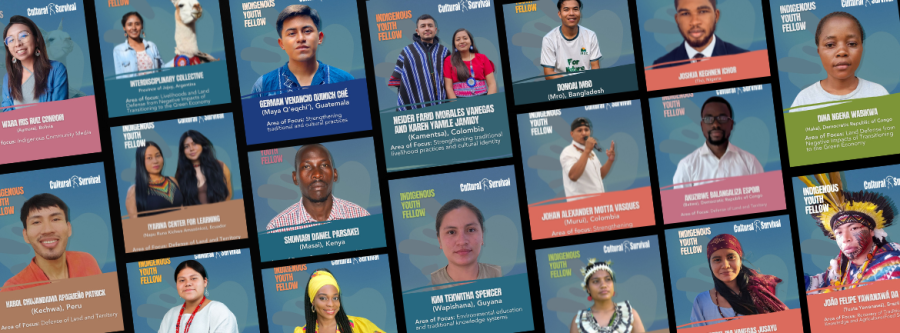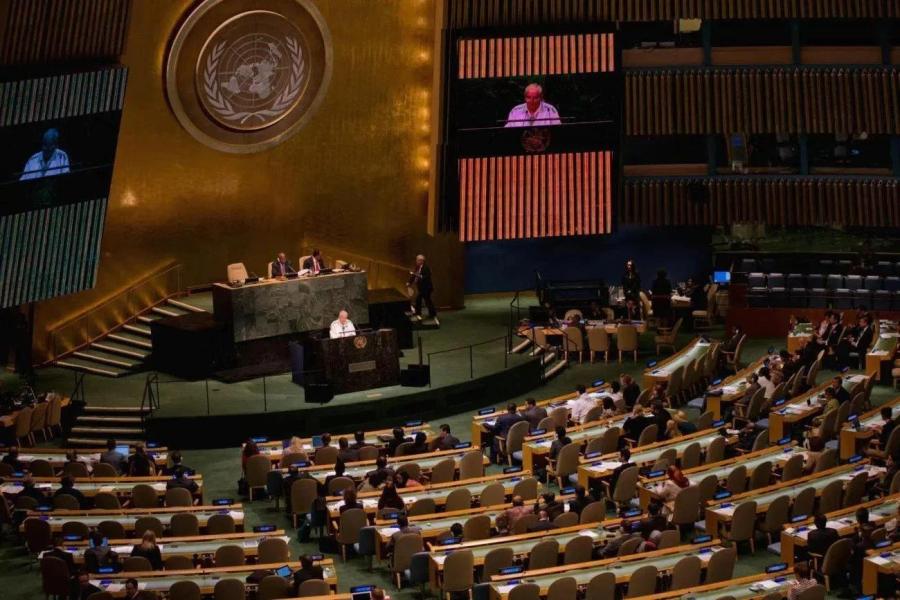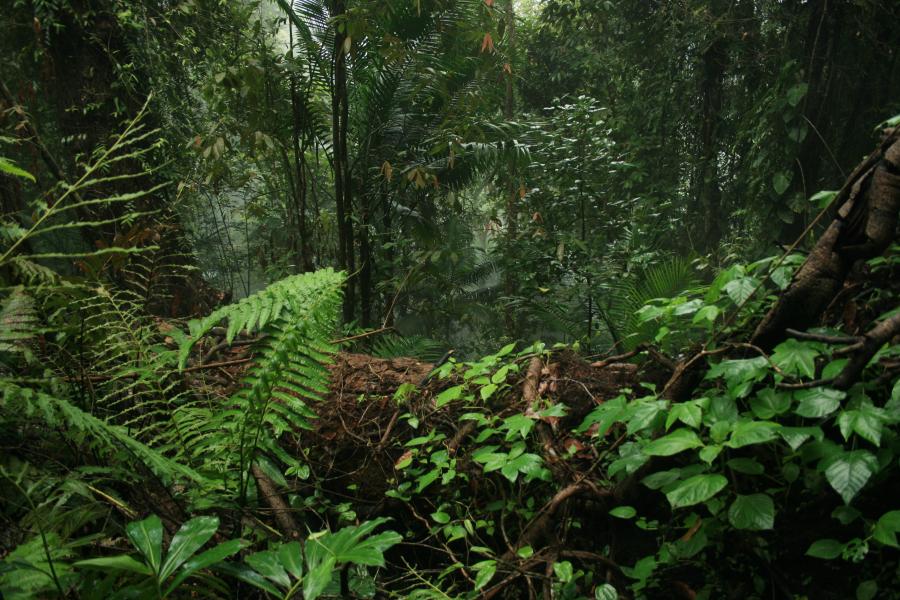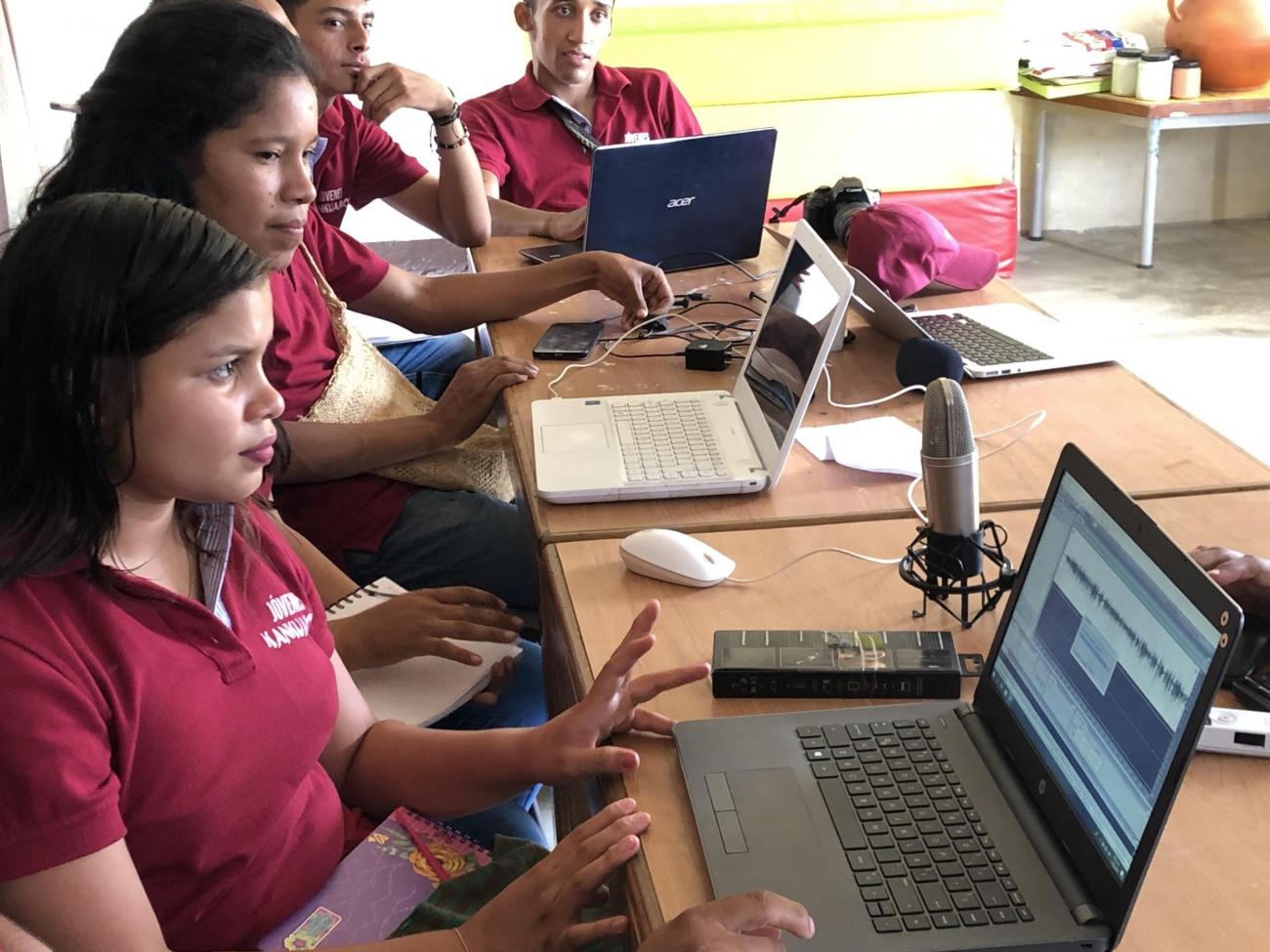
Cultural Survival's 2019 Indigenous Youth Community Media Fellows are hard at work. The Fellowship Project aims to support young Indigenous leaders between the ages of 16-26, who are committed and eager to learn about technology, program development, journalism, community radio, media, and Indigenous Peoples’ rights advocacy. Capacity of the fellows will be built through trainings, community radio station exchanges, and conference attendance.
Jóvenes Kankuamos, Atanquez, Colombia
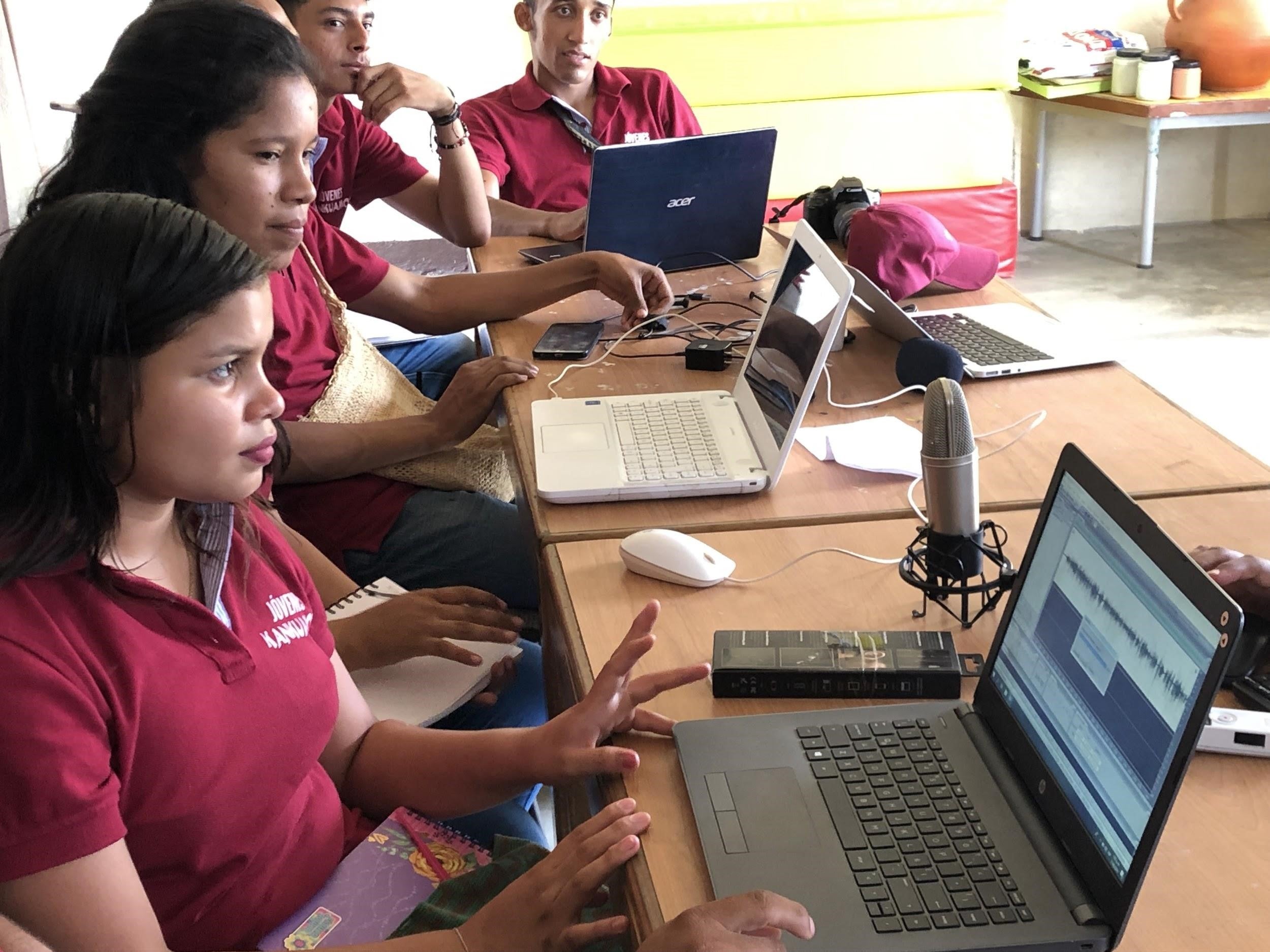
The fellows completed their first podcast on Indigenous Peoples' rights, land defense, and medicinal plants for Indigenous youth in Atanquez. They participated in a workshop facilitated by Professor Dario, on developing a theoretical model for program production. They learned to pay attention and to understand how the theoretical concepts are applied in action. It was a collective process in creating a podcast from scratch.
The group decided to make Rafael Andres as the main character due to his knowledge about medicinal plants. They visited him in his residence where he instantly started a fluid dialogue The youth took roles being technicians, photographers, and technical advisors. An intended conversation of 10 minutes ended up being an enjoyable 25-minute talk.
The editing process was an adventure because they ended up publishing in three groups, delegating tasks, and learning to use the editing software. Everyone was enthusiastic during the whole editing process. They also experimented with different musical sounds and mixing channels. Listen to their first podcast (in Spanish) http://atanquez.com/culturalsurvival/
Ronald Josë Fernández Epieyuu (Wayuu) at the UN Permanent Forum on Indigenous Issues
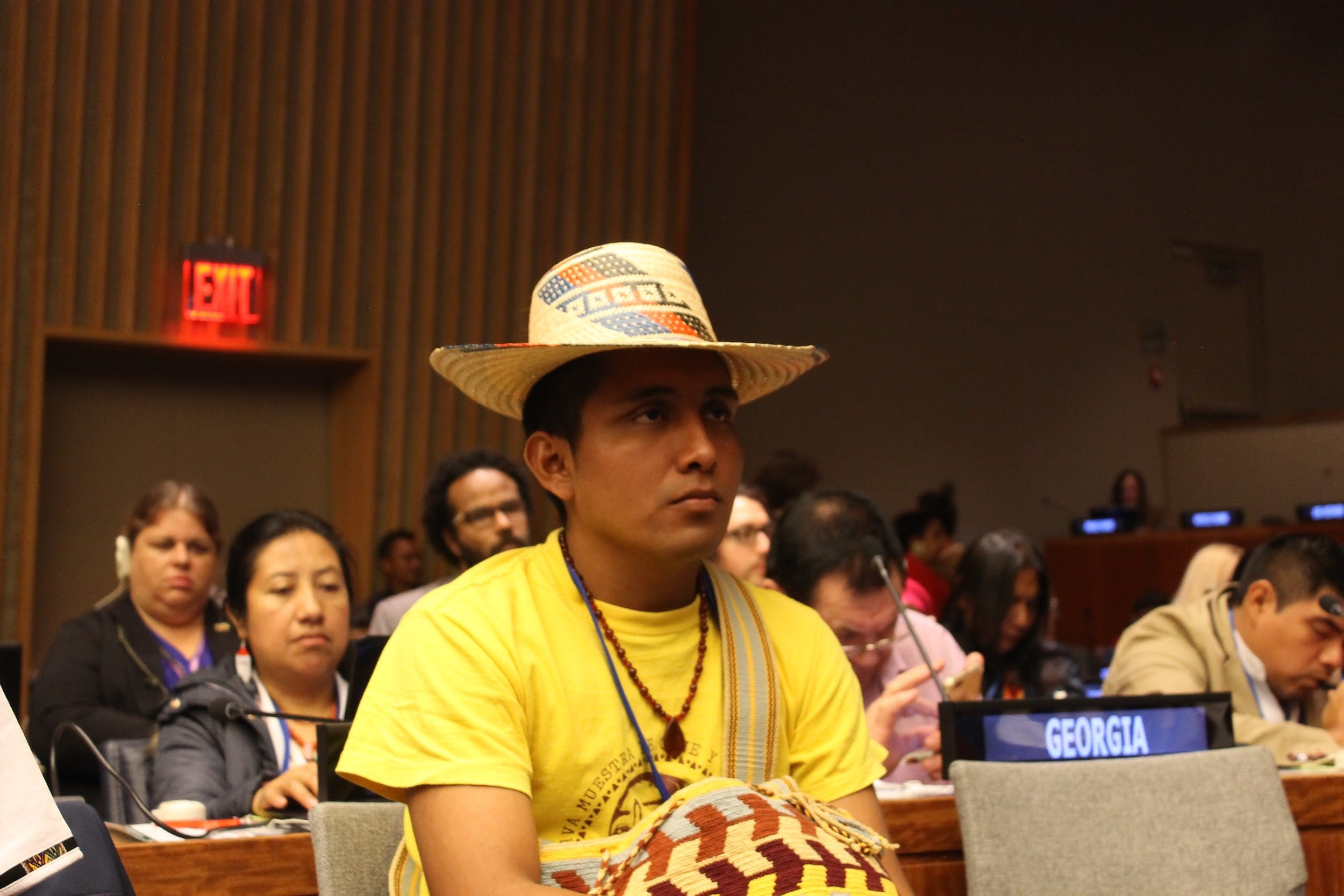
Ronald Josë Fernández Epieyuu (22) is a young Wayuu community journalist raised in a small rural village in the department of La Guajira, Colombia. He grew up among the wilderness of the mountains in the richness of his community. Arriving in New York city was a culture shock and a new experience for him to learn about another world, different from his. Being a delegate at the 18th session of the UN Permanent Forum on Indigenous Issues (UNPFII) was also an opportunity for him to meet people from other Indigenous Nations around the world. His goal was to present issues from his community and about the role of community media in transmitting ancestral knowledge.
He became a member of the regional South America Global Indigenous Youth Caucus, discussing the concerns of Indigenous communities in the areas of social, economic, and environmental issues. Ronald was also one of the panelist for Cultural Survival's side event on The State of Indigenous Community Media Globally that touched on community radio’s contribution to Indigenous rights, environmental protection, identity and language revitalization. Ronald addressed the importance of recognizing one’s own communication, “comunicación propia,” in transmitting knowledge of ancestors that has been passed down from many generations in hopes to inspire new generations in continuing the legacy in projecting the spiritual connection with the land and promoting the mother tongue and knowledge of the Wayuu people.
Astonished by the biodiversity of Indigenous Peoples issues around the world, Ronald felt that he is not alone in the struggle. Ronald’s vision is to continue strengthening his people and working towards the protection of the Wayuu territory. There are over 1300 agreements that have not been fulfilled by the governmnet of Colombia regarding Indigenous territorial land rights in La Guajira and Wayuu Territory. Here a call was made in bringing forward peaceful dialogue in compliance with the peace agreements, demanding that the government fulfill its obligations regarding precautionary measures issued by the Inter-American Commission on Human Rights in favor of the Wayuu people. These are issues that Ronald shared among his peers at the UNPFII where for the first time he felt heard and realizing his Peoples' plight is not the only one. He is a leader at heart, defending the rights and life of the Wayuu people.
Youth of Q’Ajsab’ Yol Tenam “Transmitting the Voice of the People”, Nebaj, Guatemala
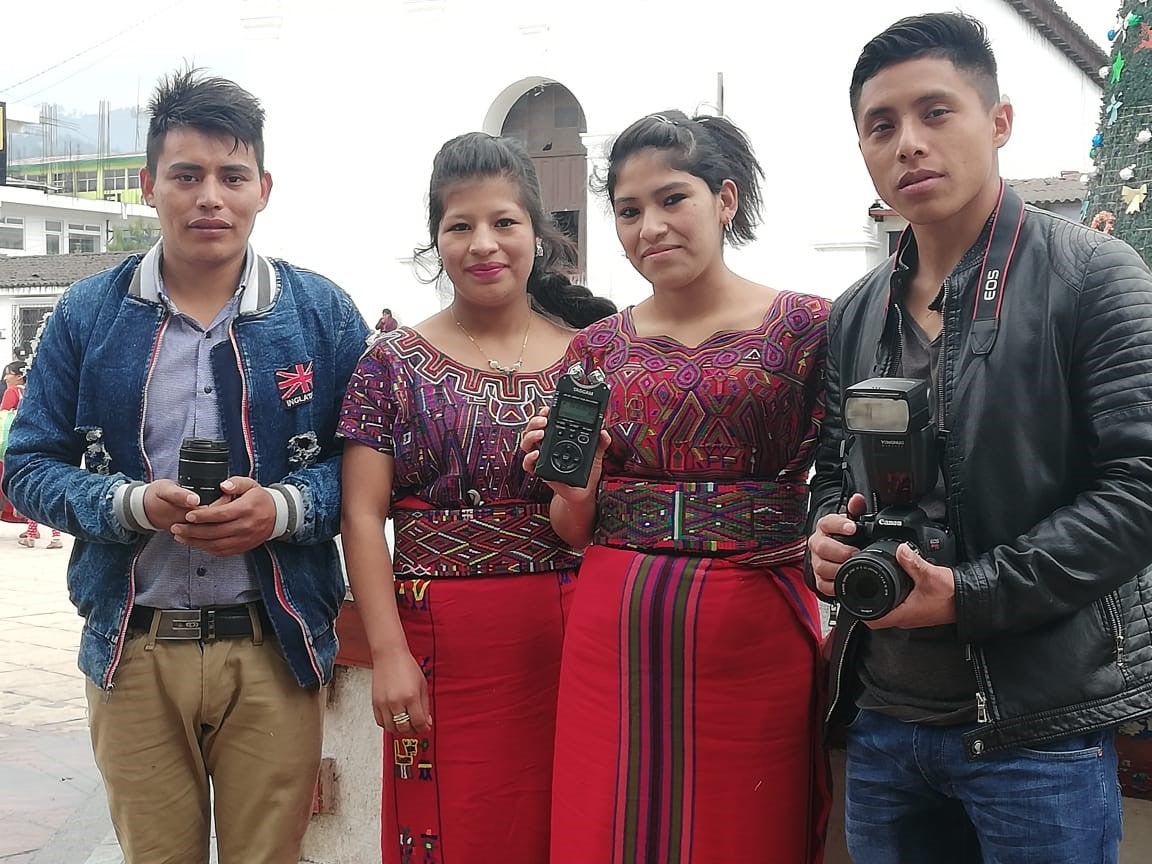
José Samuel López Pérez, Feliciana Carolina Raymundo Laynez, Diego Cobo Bernal, Petrona Raymundo Cobo (Ixíl) produced their first news program, practicing their skills in journalism, investigation, reporting, radio production. They participated in their second workshop on radio, television, community media and social networking production tools. The youth learned the basics of drafting concepts for stories and program development. They dream of having community radio in Nebaj in their mother tongue, Ixíl, to promote the richness, culture, and traditions of the Ixíl people among the youth.
In recent years, they have participated in different initiatives to raise awareness of the history of Ixíl, collaborating with Chemol txumb'al Youth Network, Ixil University, Tzikin Network and Street Cinema Collective. They are greatly involved in highlighting land struggles that support Ixil authorities in their successful resistance against hydroelectric dams and mining in their territory.
“We want to make these struggles known, highlighting our rights as Indigenous Peoples, describing our unity with our roots and identities, spreading the resistance and the visions of the communities and Ixíl authorities. Sharing about Ixíl Peoples' fight at a national level, we strive to make visible the fundamental and indispensable role of young people and women,” said José Samuel López Pérez (25 years old from Tz’alb’al).
The Youth of Radio Yapti Tasba, Puerto Cabezas, Nicaragua
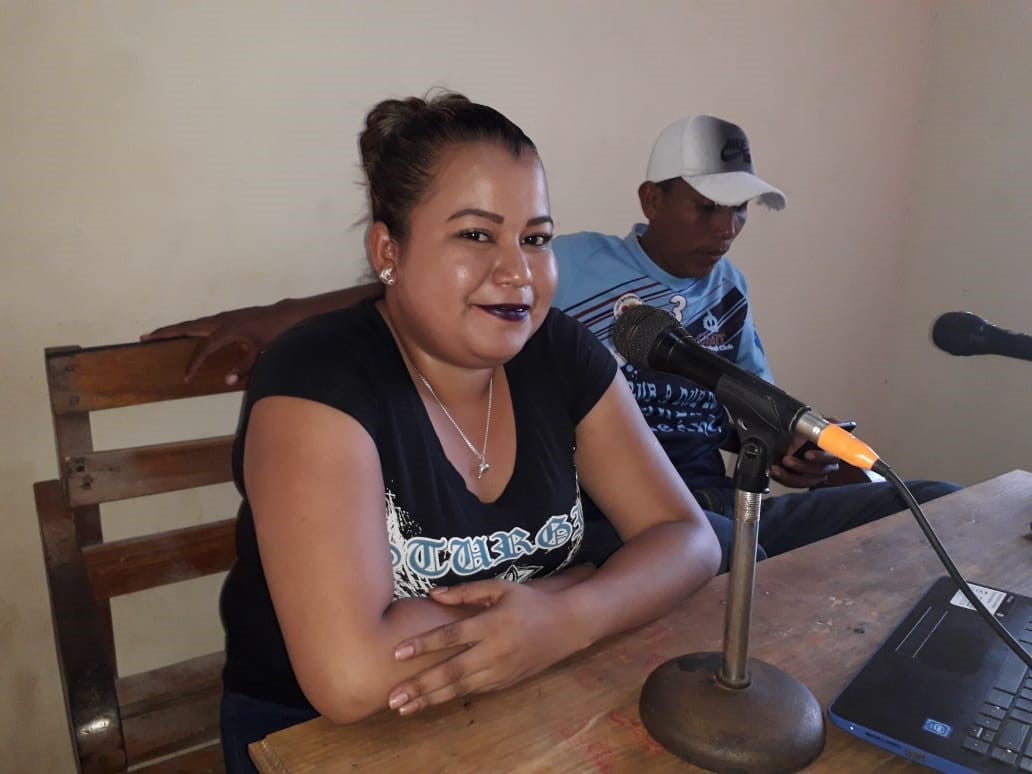
Liza Francis Henríquez and Jeyson Adonis Miranda (Miskitu) have completed their second workshop on developing radio programs on the historical and current protection of Mother Earth, which has resulted in two weekly broadcasts. They are in their second phase of their project, highlighting the history of resistance of the Miskito people against the violations of their rights to self-determination. Lisa and Jeyson have went in the field collecting interviews and investigating the needs of youth in Indigenous communities, particularly young women and youth leaders. The have built their capacities in production, program editing, and audiovisual skill technics.
“There is a need to train new voices of young people, men and women, who can communicate in a relevant and current language to other young people in the communities on the topics of local interest,” said Lisa.
